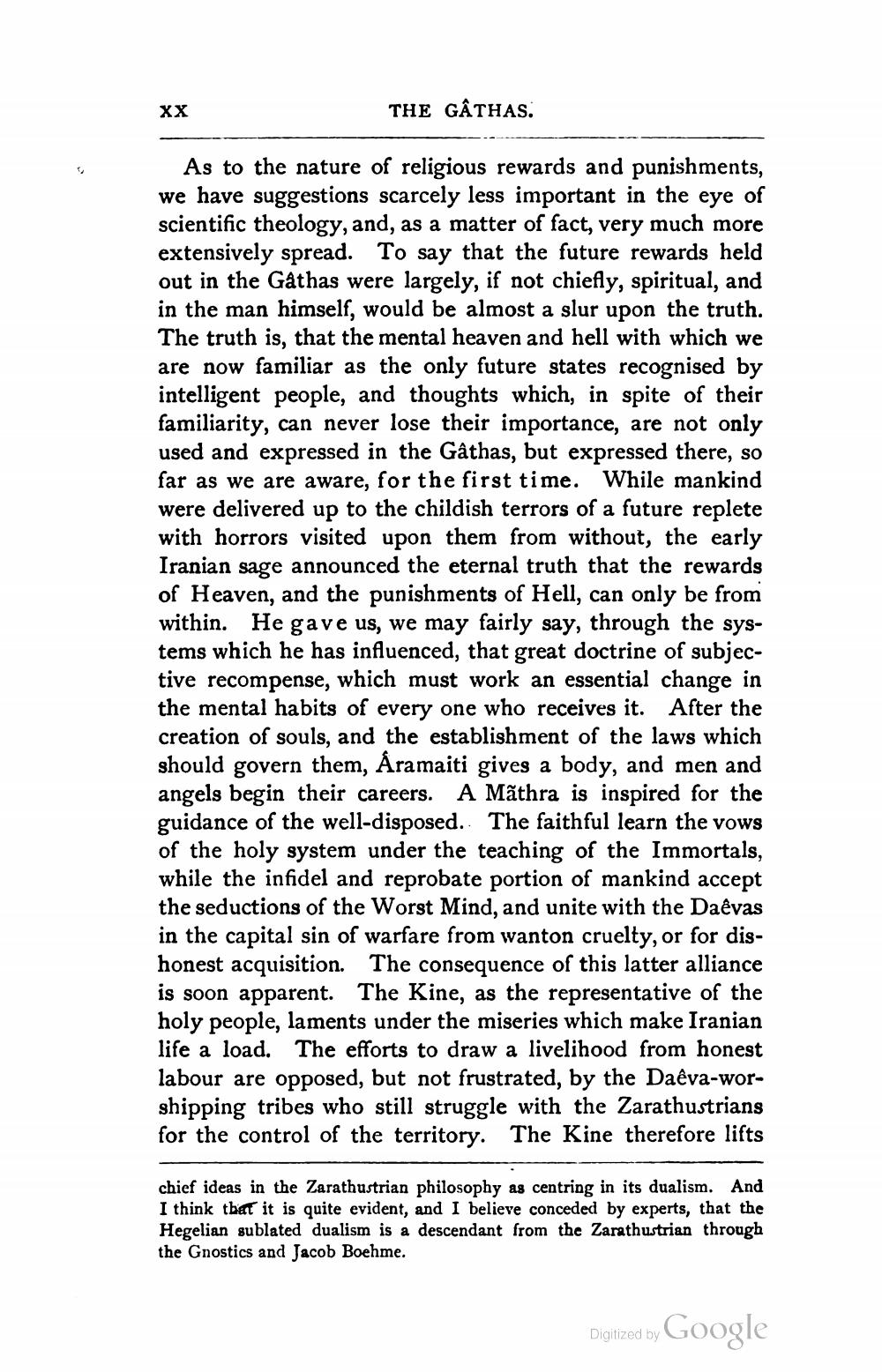________________
XX
THE GÂTHAS.
As to the nature of religious rewards and punishments, we have suggestions scarcely less important in the eye of scientific theology, and, as a matter of fact, very much more extensively spread. To say that the future rewards held out in the Gathas were largely, if not chiefly, spiritual, and in the man himself, would be almost a slur upon the truth. The truth is, that the mental heaven and hell with which we are now familiar as the only future states recognised by intelligent people, and thoughts which, in spite of their familiarity, can never lose their importance, are not only used and expressed in the Gâthas, but expressed there, so far as we are aware, for the first time. While mankind were delivered up to the childish terrors of a future replete with horrors visited upon them from without, the early Iranian sage announced the eternal truth that the rewards of Heaven, and the punishments of Hell, can only be from within. He gave us, we may fairly say, through the systems which he has influenced, that great doctrine of subjective recompense, which must work an essential change in the mental habits of every one who receives it. After the creation of souls, and the establishment of the laws which should govern them, Åramaiti gives a body, and men and angels begin their careers. A Mãthra is inspired for the guidance of the well-disposed. The faithful learn the vows of the holy system under the teaching of the Immortals, while the infidel and reprobate portion of mankind accept the seductions of the Worst Mind, and unite with the Daevas in the capital sin of warfare from wanton cruelty, or for dishonest acquisition. The consequence of this latter alliance is soon apparent. The Kine, as the representative of the holy people, laments under the miseries which make Iranian life a load. The efforts to draw a livelihood from honest labour are opposed, but not frustrated, by the Daeva-worshipping tribes who still struggle with the Zarathustrians for the control of the territory. The Kine therefore lifts
chief ideas in the Zarathustrian philosophy as centring in its dualism. And I think that it is quite evident, and I believe conceded by experts, that the Hegelian sublated dualism is a descendant from the Zarathustrian through the Gnostics and Jacob Boehme.
Digitized by Google
Digitized by




